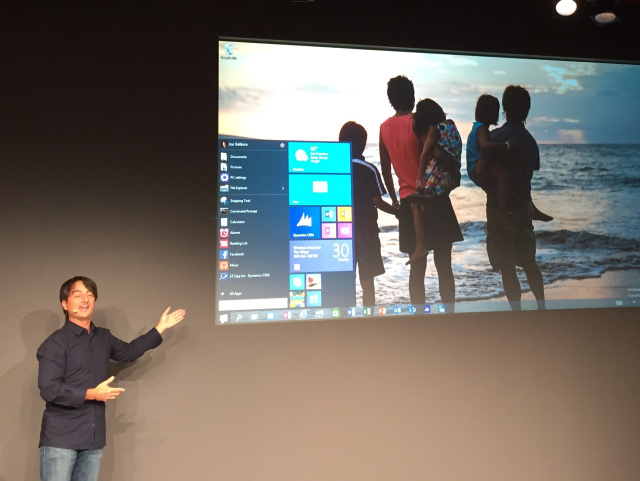Windows 10 big announcement in San Francisco puts Microsoft back on track
 It was a good day on Tuesday, at the September 30th 2014 Microsoft event in San Francisco, with a few surprises.
It was a good day on Tuesday, at the September 30th 2014 Microsoft event in San Francisco, with a few surprises.
The first surprise was the decision to name the new operating system Windows 10. Rumors of a Windows 1, then simply “Windows”, have been initially theorized. With Microsoft looking to distance itself from Windows 8, choosing Windows 9 would have surprised a lot of users.
VP of Operating Systems Terry Myerson explained that “Windows is at a Threshold and now it’s time for a new Windows, It wouldn’t be right to call it Windows 9.”.
Microsoft Windows 10 has been officially announced, in the wake of many image leaks, surprisingly close to the live demo presented by Myerson, featuring the highly anticipated return of the start menu, getting back to basics with the familiar and time-tested layout, enhanced with resizable live tiles.
Web results will also be among other features of the revamped start menu. Microsoft is going all-out with Windows 10, by adding Cortana integration, virtual desktop and the Notification Center.
A fresh design and better user experience are, however, the minor news of the event. In fact, with Windows 10, Microsoft truly intends to close the gap and end the controversy over Windows RT, which has caused a certain amount of confusion among customers who bought Microsoft Windows Surface, expecting a full-fledged Windows operating system.
In Myerson’s words Microsoft Windows 10 “will deliver the right experience on the right device at the right time”, a statement that promises of an operating system truly responsive, across different devices.
Microsoft has already announced a single store, delivering apps across all platforms, from mobile to desktop.
The decision to unify all platforms under one “polymorphic” operating system is the right move for a company looking to strengthen its position in the enterprise world, especially with powerful alliances forming, such as Apple and IBM, and as of late, Google and Adobe.